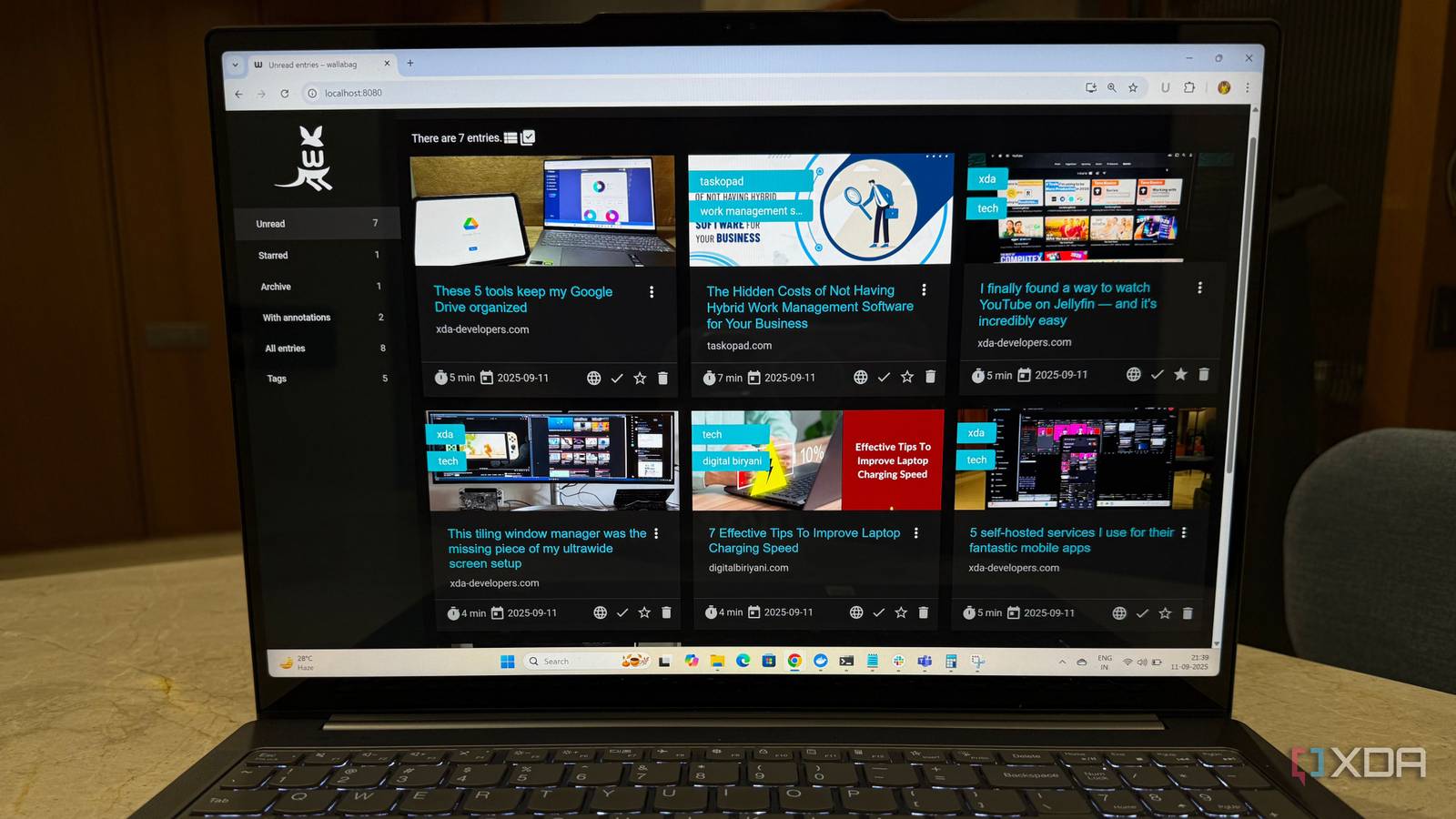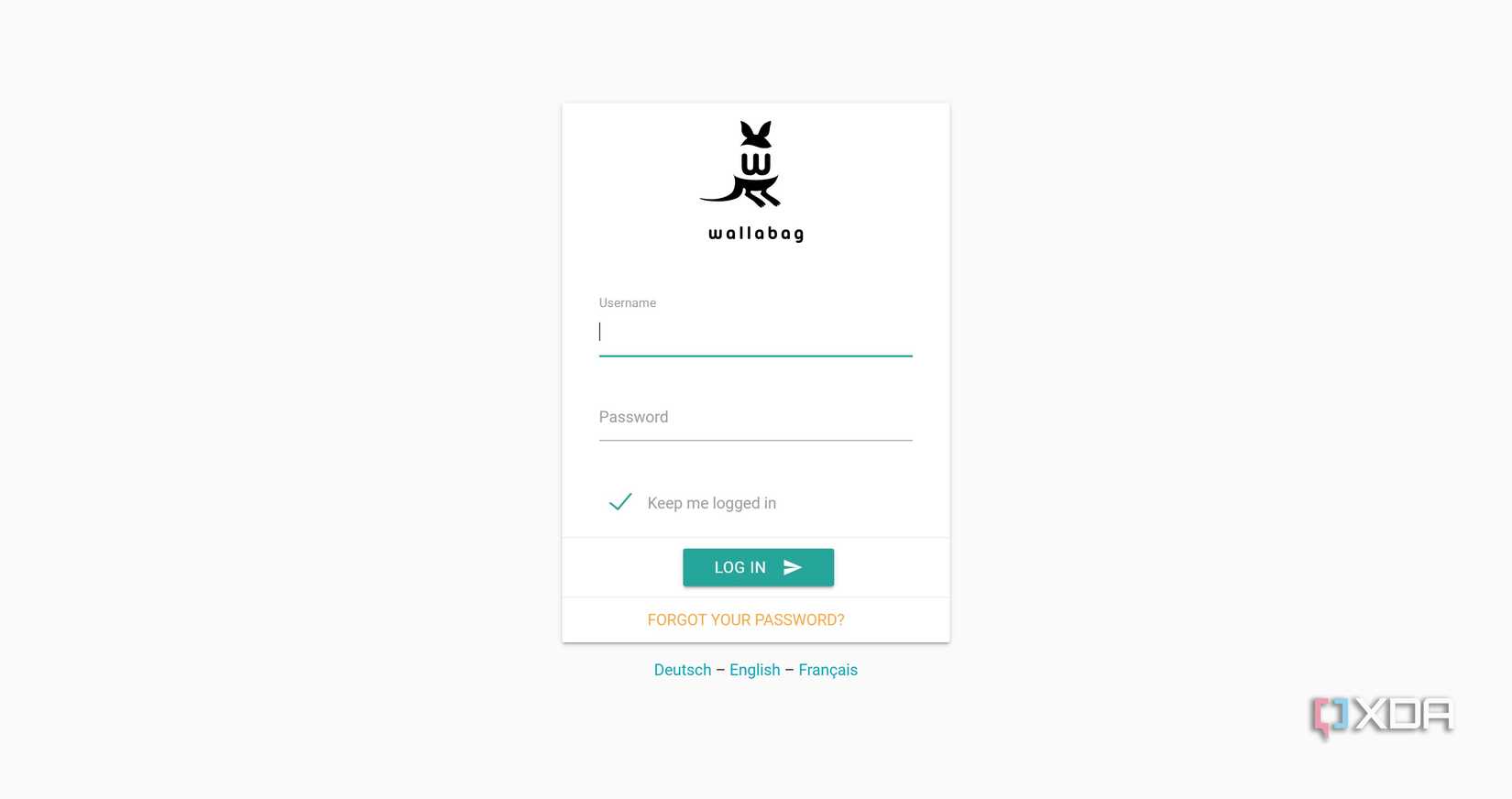After relying on Pocket for years, I found myself in a familiar dilemma when it announced its shutdown: finding a new home for my endless “to-read” list. I tried dozens of alternatives, from big-name apps to smaller services, but nothing felt right. They were all either too messy, too confusing, or they just didn’t have the features I needed. It seemed impossible to find a service that truly felt like my own.
Then, I found a self-hosted tool, Wallabag, that changed everything. It’s a powerful, self-hosted tool that gives me total control over my content. Wallabag offered a clean reading experience, a smooth way to organize everything, and the peace of mind that my data was truly mine. Here’s why I finally stopped looking and found the perfect place for all my online reading.
Clean, distraction-free reading
Reading reinvented, distractions removed
When I started using Wallabag, I was blown away by the clean and simple reading experience. For me, a bookmark manager isn’t just about saving links, it’s about consuming content right there in the app. Wallabag makes that possible by giving me a single, consistent reading view for everything I save. I no longer have to deal with the different, and often confusing, layouts of various websites.
No matter which site I save an article from, Wallabag strips away all distracting elements. The ads, pop-ups, and sidebars are all gone. This offers a truly distraction-free and smooth reading environment, which makes a huge difference. I can focus entirely on the content without any visual noise, which makes reading a much more enjoyable and productive experience.
Smart tagging and robust organization
Your personal library, perfectly tagged
After getting my content into Wallabag, the next step was getting it all organized. This is where it really shines. With other tools, tagging always felt messy and took too much time. But with Wallabag, I have total control. I can create my own tags to build a system that works for me. What I love the most are the smart tagging rules. I can set it up to automatically tag articles based on words in the title or content. For instance, an article from a certain website gets tagged as “research,” and anything with “productivity” in the title is saved for later. This automation has saved me so much time and keeps everything tidy without me having to do anything. I’m no longer just collecting links, but I’m building a neatly organized, searchable library.
Cross-device syncing & browser extension
A Read-It-Later app that travels with you
After I got a taste of how clean Wallabag’s reading experience was, I needed to make sure I could use it everywhere. One of the biggest wins for me was Wallabag’s seamless cross-device syncing. A self-hosted platform with a dedicated mobile app is what I wanted, and Wallabag is exactly the same. I can save an article on my laptop using the browser extension, and it shows up instantly on my phone. The browser extensions are super simple; with just one click, a page is saved, cleaned up, and ready to read.
But it’s the mobile apps that really make a difference. They’re fast and easy to use. I can read all my saved articles on my phone or tablet. This freedom to access my reading list anywhere has made my life so much easier. I no longer feel tied to my computer to catch up on my reading.
Annotations and filters are really productive
More than reading, it’s knowledge management
What truly makes Wallabag a productivity powerhouse are its annotation and filtering tools. While many services let you highlight text, Wallabag’s annotation feature is a cut above. I can highlight key sections of an article and add my own notes, which are then saved right alongside the content. This is a game-changer for me, turning a simple article into a living document for research and future reference.
On top of that, the filtering system is incredibly robust. I can quickly sort through my thousands of saved articles by a range of criteria, like reading time, domain name, or even whether it has annotations. This helps me instantly find exactly what I need. It’s a powerful combination that turns Wallabag from a simple reading app into a tool for managing my own personal knowledge.
It is fully self-hosted
Your data, your server, your rules
Of all the things that Wallabag offers, this is the most important for me: it’s fully self-hosted. I host the entire application using docker on my own server, which means I have complete control over my data. Unlike Pocket and other services, I’m not trusting my reading list to a third-party company that could change its privacy policy or shut down tomorrow. My articles, my highlights, and my notes are all on a server that I own and manage. This gives me peace of mind that my digital library is safe, private, and truly mine. I can read, organize, and annotate content without worrying about my data being used for targeted ads or sold to another company. It’s the ultimate freedom for a content-hungry tech blogger like me.
Bookmark manager? Nah, it’s knowledge management!
Switching to a self-hosted tool like Wallabag was a game-changer. What started as a hunt for a simple Pocket replacement that could simplify my bookmarking turned into building my own digital library. This is more than just a place to save links. Wallabag offers a clean reading view, smart organization, and powerful annotation and filters. I have full control over my data on my own server, giving me peace of mind that my content is safe and private. This isn’t just a bookmark app, it’s a powerful tool for knowledge management. I’m not just saving articles anymore, it lets me build a personal, searchable library that helps me stay updated and productive.

